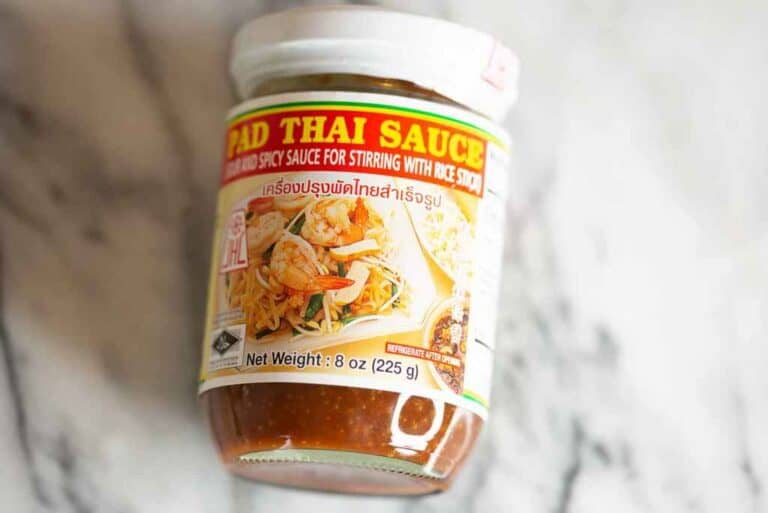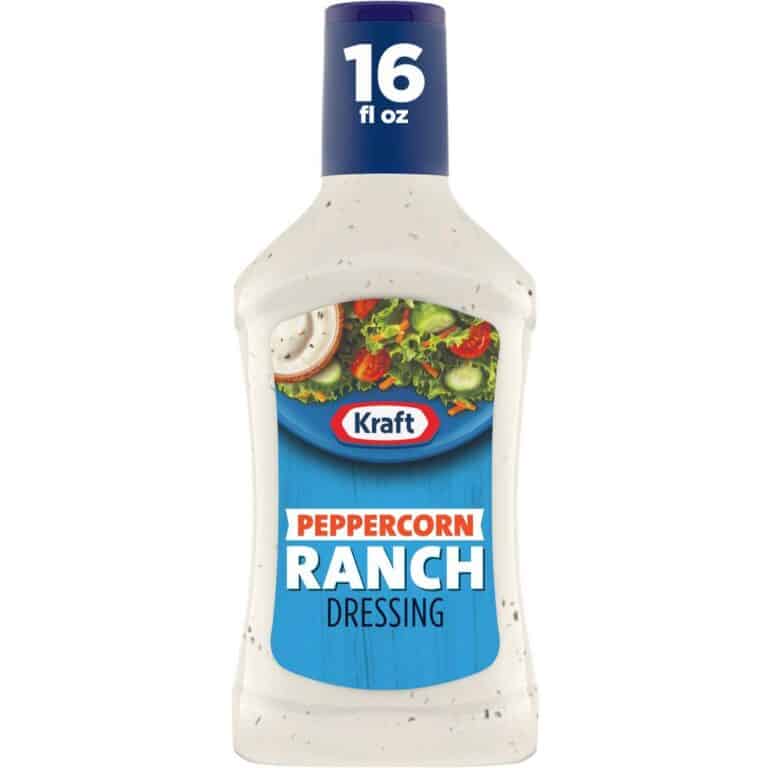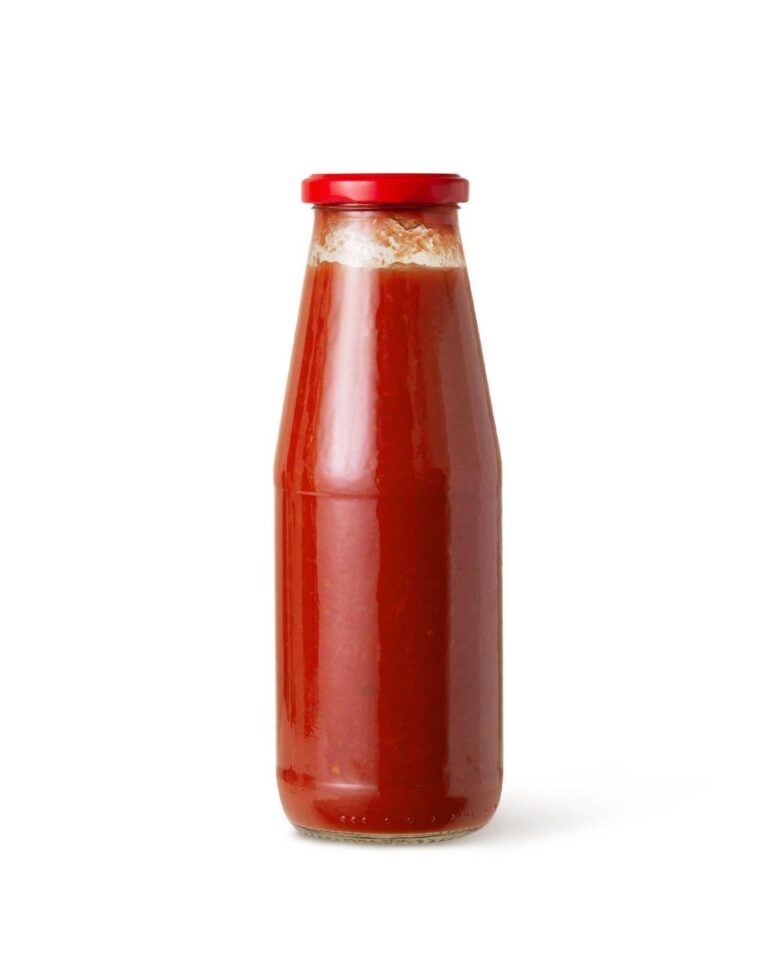Does Fish Sauce Have To Be Refrigerated After Opening? Does It Go Bad?

Welcome to the tantalizing world of fish sauce! If you’re a fan of Asian cuisine, you’ve likely encountered this intriguing condiment known for its bold, savory flavor. But have you ever wondered if fish sauce needs to be refrigerated? Or if it has the potential to go bad? We’re here to unravel the mysteries and provide you with all the answers you seek.
In this article, we’ll dive deep into the realm of fish sauce storage, shelf life, and the signs of spoilage. From understanding the nuances of unopened bottles to the importance of refrigeration for maintaining freshness, In addition to that, we’ll guide you through the dos and don’ts of storing fish sauce.
Prepare to explore the aromatic depths of fish sauce and gain valuable insights into its proper care. Whether you’re a fish sauce connoisseur or just starting out, this article will help you enjoy this delicious condiment. So, let’s embark on this flavorful adventure and uncover the secrets of fish sauce storage together!
Introduction to Fish Sauce
Fish sauce is a pungent and savory condiment that has been an integral part of Asian cuisine for centuries. Fish sauce has enhanced the flavors of countless dishes across Southeast Asia and beyond since ancient civilizations.
The process of making fish sauce begins with selecting fresh fish or shellfish. Traditionally, small fish such as anchovies or herring are used due to their high protein content and rich flavor. The fish are carefully cleaned and mixed with salt in large fermentation containers, often wooden barrels or clay pots. The salt acts as a preservative, preventing the growth of harmful bacteria while promoting fermentation.
During fermentation, the fish undergo a complex enzymatic breakdown. The proteins in the fish break down into amino acids and peptides, giving rise to a rich umami flavor. The action of naturally occurring bacteria and yeasts present on the fish facilitates this transformation. Over the course of several months, the mixture slowly ferments, developing a deep, complex aroma and taste.
The length of fermentation time can vary depending on the desired flavor profile and regional preferences. Some fish sauces are fermented for as little as a few months, while others may undergo fermentation for a year or more.
Throughout the fermentation process, the containers are typically stored in a cool, dark environment. This helps maintain optimal conditions for the development of flavor.
Once the fermentation is complete, the liquid part of the mixture is extracted and strained to remove any solids. What remains is a potent, amber-colored liquid with a strong aroma. The fish sauce is often further filtered and aged to allow the flavors to mellow and mature.
Fish sauce is characterized by its distinctive salty and umami taste. It is highly concentrated, so a little goes a long way in cooking. It is used as a flavor enhancer in various dishes. It adds depth and complexity to soups, stir-fries, marinades, and dipping sauces. The versatility of fish sauce allows it to be incorporated into a wide range of recipes, from traditional Asian dishes to fusion cuisine.
Different regions have their own variations of fish sauce, each with its own unique characteristics. Vietnamese fish sauce, known as nuoc mam, tends to have a lighter and slightly sweeter flavor. Thai fish sauce is often saltier and more pungent. Filipino patis, Cambodian teuk trei, and Burmese ngan bya yay are some examples of fish sauces from other Southeast Asian countries.
The Shelf Life of Fish Sauce

Fish sauce is made from fermented fish and salt, which gives it its unique taste. Due to the fermentation process, fish sauce has a long shelf life. Unopened bottles of fish sauce can be stored at room temperature for up to two years or even longer, depending on the brand.
But once you open a bottle of fish sauce, it is recommended to store the fish sauce in the refrigerator. While refrigeration is not strictly necessary, it helps to maintain the quality and extend the shelf life of the sauce. When properly stored in the refrigerator, unopened fish sauce can last for several years without significant loss of flavor or quality.
Does Fish Sauce Have To Be Refrigerated After Opening?
One of the intriguing aspects of culinary culture lies in the myriad ways we preserve and enhance the flavors of our beloved ingredients. Among the diverse range of condiments, fish sauce holds a revered place, known for its unique umami flavor and remarkable versatility. However, as an inquisitive gastronome, you may find yourself pondering a question that arises whenever you crack open a bottle of this pungent elixir: Does fish sauce have to be refrigerated after opening?
The journey of fish sauce begins with the careful fermentation of fish, usually anchovies or other small, oily species. This process extracts the essence of the sea, transforming it into a rich, amber-colored liquid that teems with savory depth. It is this very concentration of flavors that grants fish sauce its exceptional ability to elevate a multitude of dishes, from soups and stir-fries to marinades and dressings.
When it comes to the storage of fish sauce, the answer to our question lies within the alchemy of preservation. Unopened bottles can be safely stored at room temperature, thanks to the high salt content and low pH levels present in the sauce. These natural elements act as formidable barriers against harmful bacteria, ensuring the sauce’s stability and prolonging its shelf life.
However, upon opening that prized bottle of fish sauce, the preservation dynamics shift. Exposure to air and the introduction of microorganisms through utensils or fingers can compromise the sauce’s integrity. To safeguard its quality, it is advisable to store opened fish sauce in the refrigerator. The cool temperatures help inhibit the growth of bacteria, extending the sauce’s lifespan and preserving its intricate flavors.
Refrigeration, though essential for maintaining the longevity of fish sauce, may present a slight challenge. The cold environment can cause the sauce to congeal or develop sediments, altering its texture. However, fear not, for this is merely a natural consequence of chilling the sauce and does not indicate spoilage. To restore fish sauce to its original consistency, gently warm it in a water bath or at room temperature, allowing it to regain its fluidity before using it in your culinary creations.
By diligently refrigerating your opened bottle of fish sauce, you ensure that each drop remains a tantalizing tribute to the sea’s bounty. With its umami-laden notes and profound depth, fish sauce becomes a steadfast companion, ready to lend its enchantment to your culinary adventures. So, embrace the tradition of preservation, savor the complexity of flavors, and let fish sauce transport your taste buds to a world where the sea reigns supreme.
Storing Fish Sauce
When it comes to storing fish sauce, there are a few key points to keep in mind:
- Temperature: As mentioned earlier, refrigeration is not mandatory for unopened fish sauce bottles. However, storing them in a cool, dark place can help preserve their flavor and quality. Once opened, refrigeration is highly recommended to maintain freshness.
- Avoiding Contamination: Always use clean utensils when handling it. This prevents contamination and maintains the quality of the fish sauce. Make sure to close the bottle tightly after each use to minimize contact with air and potential spoilage.
- Bottled Fish Sauce: If you buy fish sauce in plastic or glass bottles, it’s best to keep it in its original packaging. The bottles are designed to protect the sauce from light exposure and preserve its flavor. However, if the original bottle is damaged or no longer available, you can transfer the fish sauce to an airtight container before refrigerating it.
How to Store Fish Sauce Without Refrigerator?
Any connoisseur or enthusiast must preserve fish sauce’s delicate flavors and longevity. While refrigeration is the most common way to store fish sauce, there are other ways to keep it fresh and accessible without a fridge.
One option for storing fish sauce without refrigeration is to rely on traditional preservation techniques. These methods have been practiced for generations, harnessing the power of nature to safeguard the sauce’s quality. Consider finding a cool, dark, and well-ventilated area in your home, such as a cellar or pantry, to create an ideal storage environment. These spaces maintain a stable temperature, shielding the fish sauce from excessive heat or direct sunlight that could degrade its quality.
To protect your fish sauce from contaminants and maintain its distinct characteristics, store it in an airtight container. Opt for opaque glass bottles or jars, as they provide protection from light while allowing you to check the sauce’s level. The airtight seal prevents oxygen from seeping in. Preserving the sauce’s freshness and preventing oxidation.
When storing fish sauce without refrigeration, it is essential to keep it away from strong odors. The potent aroma of fish sauce can easily permeate other foods or items stored nearby, resulting in an unwanted mingling of scents. To prevent flavor transfer, designate a specific area for your fish sauce storage, away from other fragrant ingredients or household products.
Maintaining proper hygiene is paramount when storing fish sauce without refrigeration. Before transferring the sauce into the storage container, ensure that it is clean and dry. Any residual moisture or contaminants could compromise the quality and lead to spoilage. Additionally, handle the fish sauce with clean utensils to avoid introducing bacteria or impurities.
Regularly inspecting the fish sauce is essential to ensuring its integrity over time. Check for any signs of spoilage, such as an off-putting odor, mold growth, or an unusual change in color or consistency. If you detect any of these indications, it is best to discard the sauce to prevent any potential health risks or flavor degradation.
It’s possible to store fish sauce without refrigeration, but refrigeration is the best way to keep it fresh. To maximize shelf life, refrigerate fish sauce if you live in a warm or humid climate or plan to store it for a long time.
Signs of Fish Sauce Spoilage
Fish sauce, like many other condiments, can spoil over time. It’s important to be able to recognize the signs of spoilage to ensure you’re using a safe and flavorful product. Here are some indicators that your fish sauce may have gone bad:
- Strange Odor: If your fish sauce has a foul or unpleasant odor, it’s likely an indication of spoilage. Fresh fish sauce has a pungent, fishy aroma, but it should not be overpowering or off-putting.
- Mold or Sediment: Visual cues are also important. Check for any signs of mold growth or unusual sedimentation in the bottle. If you notice anything unusual, it’s best to discard the sauce.
- Change in Color or Texture: Fresh fish sauce has a dark brown color and a smooth, liquid consistency. If you observe any significant changes in color or texture, such as clumps or separation, it may be a sign of spoilage.
- Off Taste: The most reliable indicator of spoiled fish sauce is an off taste. If your fish sauce tastes rancid, sour, or significantly different from its usual flavor, it’s best to err on the side of caution and replace it.
Health and Safety Considerations When Consuming Expired Fish Sauce
While it’s generally best to discard expired fish sauce, consuming a small amount of slightly expired fish sauce is unlikely to cause immediate harm. However, there are a few health and safety considerations to keep in mind:
- Foodborne illnesses: Consuming spoiled fish sauce increases the risk of foodborne illnesses caused by bacteria, such as Salmonella or Clostridium botulinum. These can lead to symptoms like nausea, vomiting, diarrhea, and abdominal pain. If you experience any of these symptoms after consuming expired fish sauce, seek medical attention.
- Allergies and sensitivities: Some individuals may have allergies or sensitivities to fish or certain ingredients in fish sauce. If you have known allergies or sensitivities, be cautious and avoid consuming expired fish sauce to prevent adverse reactions.
- Foodborne illnesses: Foodborne illnesses are more likely in pregnant women and those with compromised immune systems, such as those undergoing chemotherapy or with autoimmune diseases. It’s advisable for them to avoid consuming expired fish sauce to minimize the risk of infection.
When in doubt, it’s best to err on the side of caution and dispose of expired fish sauce to ensure food safety.
Summary
Fish sauce, a staple in many Asian cuisines, can be stored at room temperature when unopened, but refrigeration is recommended for maintaining its quality after opening. While fish sauce doesn’t necessarily go bad quickly, proper storage can help preserve its flavor and prevent spoilage.
Look out for signs of spoilage such as foul odor, mold, changes in color or texture, and an off taste. If you notice any of these signs, it’s best to discard the sauce. Remember to use clean utensils, tightly seal the bottle, and store it in a cool place or the refrigerator for optimal freshness.
Fish sauce is a versatile and flavorful condiment that adds a unique umami taste to dishes. By understanding its shelf life and proper storage, you can enjoy the delightful flavors of fish sauce in your favorite recipes for an extended period of time.
FAQs
Can I freeze fish sauce?
Freezing fish sauce is not recommended. The high salt content can cause the sauce to separate and become watery when thawed. It’s best to store fish sauce in the refrigerator for long-term preservation.
What happens if I don’t refrigerate fish sauce after opening?
While fish sauce can be stored at room temperature after opening, refrigeration is highly recommended. If you choose not to refrigerate it, the sauce may lose its quality more quickly. Exposure to air and fluctuating temperatures can accelerate spoilage, leading to changes in flavor, texture, and aroma.
How long does fish sauce last after opening?
When stored in the refrigerator, opened fish sauce can last for several years without significant degradation in quality. However, it’s important to note that over time, the flavor of the fish sauce may mellow and become less potent. To ensure the best flavor experience, it’s advisable to use opened fish sauce within a year or two.
Can fish sauce develop mold?
While it is uncommon for fish sauce to develop mold due to its high salt content and acidity, it is still possible under certain conditions. Mold growth may occur if the sauce is exposed to moisture or stored in improper conditions. If you notice any mold or unusual growth, it is advisable to discard the fish sauce.
Is it normal for fish sauce to have sediment or floaters?
Yes, it is normal for fish sauce to have some sediment or floaters. These particles often consist of fish protein or residue from the fermentation process. They are safe to consume and do not indicate spoilage. However, if the sediment or floaters appear unusual or are accompanied by other signs of spoilage, it’s best to discard the fish sauce.
Can I transfer fish sauce to a different container for storage?
It is generally recommended to store fish sauce in its original food container. The packaging is designed to protect the sauce from light and air exposure. However, if necessary, you can transfer the fish sauce to a clean, airtight container that can be properly sealed to minimize air contact.





